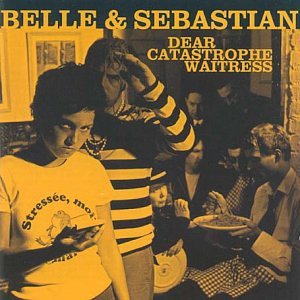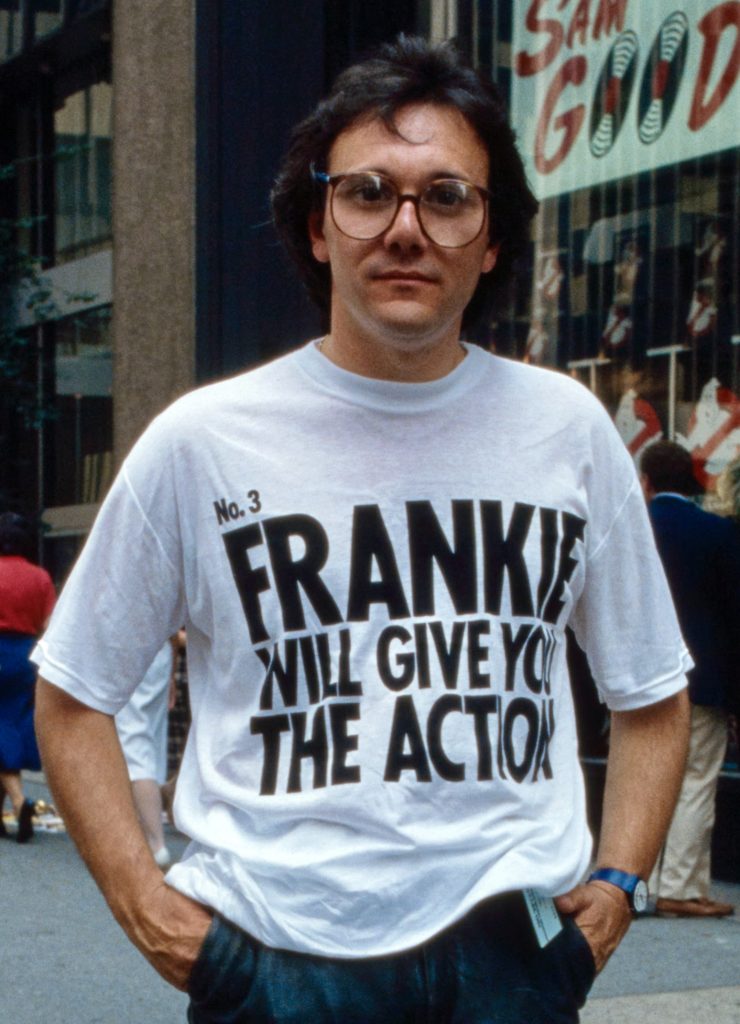
Before 2003, Belle and Sebastian were well-known as a lo-fi, soft spoken band, with a seemingly simple workflow; Stuart Murdoch, the bands front man, would record his acoustic guitar and vocals first, and have the band work around what he’d already created. So it seemed unusual to fans that Trevor Horn was to produce their next album. He was well known for his production technique of ‘sending the band home and working around a naked vocal track’ (Paphides, P. (2003)), which almost goes against what Stuart Murdoch was trying to achieve with his music, they had this indie, arts and crafts energy that rejected the reputation that Trevor Horn had built for himself. He first approached the band after finding out his son was a big fan, reportedly telling Murdoch he knew what the band were ‘trying to achieve’ and that he ‘could help them do it’, which piqued the bands interest, and eventually, persuaded them to collaborate with Horn.
‘Dear Catastrophe Waitress’ has been described as ‘the Belle and Sebastian album for people who never really liked Belle and Sebastian’ and whilst I recognise the the thought process behind this statement, I disagree. I find that Trevor Horn did an exceptional job of staying true to the bands fundamental values whilst incorporating his personal style into the album. Obviously ‘Dear Catastrophe Waitress’ has a completely different energy to it, but still plays upon Murdochs sense of humour and focuses heavily on his fast paced, expositional lyrics, with tracks like ‘Piazza, New York Catcher’ and ‘Wrapped up in Books’ feeling like they could easily fit into one of the bands earlier albums such as Tigermilk or If You’re Feeling Sinister
I think that Trevor Horn did a great job of diversifying their sound, breathing a new life into their style before it could become stale. Notably, the track ‘Stay Loose’ is unlike any of the other songs on the album, with funky bass lines and ‘subtle electronica’, it definitely shows the most Trevor Horn influence. I think that since working with him, Belle and Sebastian have carried some aspects of his work throughout their career, with their style evolving significantly over the years. I think that whilst ‘Dear Catastrophe Waitress’ isn’t their best album overall, it definitely signifies a turning point in their career, and could be seen as some of their most important and impactful work. It maintained the human warmth of Belle and Sebastian but took their production to a new level, preventing them from becoming a ‘one-trick pony’.


Britt, T., Britt, T. and Belle and Sebastian Write About Love (2010) Belle and Sebastian: Belle and Sebastian Write about love, PopMatters, PopMatters. Available at: https://www.popmatters.com/131956-belle-sebastian-belle-sebastian-write-about-love-2496128474.html (Accessed: October 30, 2022).
Hogan, M. (no date) Belle and Sebastian: Tigermilk, Pitchfork. Available at: https://pitchfork.com/reviews/albums/belle-and-sebastian-tigermilk/ (Accessed: October 30, 2022).
Nme (2005) Belle & Sebastian : Dear Catastrophe waitress, NME. Available at: https://www.nme.com/reviews/reviews-nme-7185-311902 (Accessed: October 30, 2022).
Paphides, P. (2003) Belle & Sebastian, Dear Catastrophe Waitress, The Guardian. Guardian News and Media. Available at: https://www.theguardian.com/observer/omm/10bestcds/story/0,,1062885,00.html (Accessed: October 30, 2022).
Phipps, K. (2006) Belle and Sebastian: The life pursuit, The A.V. Club. The A.V. Club. Available at: https://www.avclub.com/belle-and-sebastian-the-life-pursuit-1798201422 (Accessed: October 30, 2022).
Plagenhoef, S. (2003) Belle and Sebastian: Dear catastrophe waitress, Pitchfork. Pitchfork. Available at: https://pitchfork.com/reviews/albums/633-dear-catastrophe-waitress/ (Accessed: October 30, 2022).
Pop, C. (2020) My life in vinyl: Trevor Horn, Classic Pop Magazine. Available at: https://www.classicpopmag.com/2019/10/my-life-in-vinyl-trevor-horn/ (Accessed: October 30, 2022).
